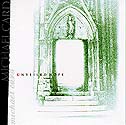Touchstone has a very interesting article on kids and culture. The author, a teacher in a charter school in Colorado, contends that there is a strong breed of young people who are rejecting the tolerance they have been told is right. These students he identifies as "red-state students" who come from "the culture that deliberately embraces traditional morality, principally based in the Christian faith, most prevalent in, but not confined to, the “red states.”"
As someone who lives in a blue state and has taught in the public schools, I began to have questions. What is our hope? Is our hope that red state morality ("Judeo-Christian values") will prevail in our country?
The author, in describing one of his students says,
"In short, she wants to give to her children the same things her parents gave to her, the important things: safety, education, faith, family."
I cannot help but notice that
safety came first in that list. Having just listened to the testimony of Steve Saint, whose father was martyred in Eduador by a tribe that had a 60% (yes, that's right) homicide rate, there is a profound dissonance. Steve Saint has witnessed a
glorious, profound turning of this tribe to Jesus that came through his parents' choice to go to the dangerous places to share the good news. Steve Saint has picked up on what his parents gave to him, the important thing:
Christ, and for His sake, family and education.
I am glad that kids are rejecting relativism; I'm glad that they're not sleeping around; I'm glad that they're reading the classics, and that they see the aesthetic emptiness of much of what passes for 'art.' Yet my hope is not that we will become a moral 'red state' society, but that Christ will be
all in all - in
all the nations.





































